In my hometown
Darkness – One womanizer – My Relatives Think I’m a Rothschild
At last, I’m back in the town where I was born — Skala. I’ll try, as best I can, to describe everything I saw and experienced in this ill-fated little town. But before I do, I feel the need to offer a short explanation, so the reader can truly grasp the situation.
For years, Skala considered me rich. Very rich. It’s a common assumption that all Americans are wealthy, but in my case, the townspeople had extra reasons to believe so: during the war, I helped my hometown. I raised large sums of money. During the World War, I was president of the Skala Relief Committee. Everything that was sent to Skala came in my name — so naturally, they believed I was the source of it all.
When the late Max Payne came to Galicia as a representative of the Joint Distribution Committee, I gave him money to help Skala. There, he told people that the funds had come from me. And when he heard the rumors about my supposed fortune, he didn’t bother correcting them. “Why ruin their dreams?” he told me when he got back.
And then, when I was in Warsaw and one of my plays was staged, my name started appearing in the newspapers — almost daily. And they read everything. They didn’t miss a word. You can imagine what that did to their imagination about my wealth.
So, I started getting letters from relatives in Skala, asking for help. They were waiting for me like a savior, a Messiah, someone who would lift them out of misery.
With that in mind, the reader will understand what awaited me upon my return to the shtetl. I arrived in Skala at eight in the evening. They took me to a hotel owned by a widow. She recognized me immediately.
“Sholem Aleichem,” she said. “I knew you from the photo we saw in the Warszawer Yidisher Togblat. We’ve been waiting for you here for two weeks. Please sit, you must be tired and hungry. I’ll bring you something to eat.”
“Thank you,” I said, putting down my things. “But I don’t want to sit, I don’t want to eat. I want to go outside and walk around the town.”
“You can’t do that,” she said. “It’s too dark.”
“So what?” I said. “It’s my town — I can walk in the dark.”
“No, you can’t.”
“I’ll check it out!”
“You can try,” she replied. “But be careful. And come right back.”
I opened the door and stepped outside. But I didn’t get far. I couldn’t see a thing. Just darkness — thick, impenetrable darkness. The kind you read about in the Bible, the plague of darkness in Egypt. I turned and ran back into the hotel.
“Good thing you came back,” said the landlady. “Even I wouldn’t go out alone at night.”
Just then, the door opened and in walked a young man in worn-out clothes, with a face badly in need of a shave. He kissed me.
I stared at him, bewildered.
“You don’t know who I am?” he asked. “We parted when we were kids. I’m your cousin Klazman — I wrote to you in Warsaw. I live in Prawujna, but I came here just to meet you. I’ve been waiting for days. The coachman who brought you from the station told me you’d arrived.”
Before I could say a word, the door opened again (they don’t knock here) and in came a young man and woman — both poorly dressed — and rushed to kiss me.
“We’re your cousins — Shlomo and Feige,” they introduced themselves.
Before I could recall who they were, the door opened once more, and in stepped a bearded Jewish man — the kind of beard you only see in American movies, worn by reclusive old men who fight lions in Africa. He had a scar on his cheek and looked ancient.
He stood there, staring at me. I stared back.
“Don’t you recognize me?”
“No…”
He stepped closer.
“It’s me. Zelman. Your childhood friend.”
[…]
I asked everyone to step out for a bit.
“Fine,” said Klazman. “I’ll take you for a walk. I’ll be your assistant.”
“What do I need an assistant for?” I asked. “What am I, a rabbi collecting charity?”
“A rabbi who gives money needs an assistant even more,” he replied.
We went outside. There was nothing but darkness. You could feel it pressing in on you. And the swamp — what a swamp! My American shoes, unaccustomed to mud, cracked as I pulled them from one patch and sank into the next.
“Is it always like this?” I asked.
“The marsh grows every year,” my friend said. “Come back next year and there’ll be even more of it.”
“What about in winter?”
“In winter, the swamp freezes. But only people from Skala know how to walk on it. Visitors might leave their feet behind.”
“I don’t remember a swamp like this when I was a child,” I said.
“Ah, in those days,” he began, “everything was different. We had streetlights. You could go for walks at night. Do you remember?”
“Of course.”
“Remember the tailor’s apprentice sneaking out with girls? We used to spy on them, remember? Rachel with the blue eyes?”
“I remember.”
“And Sheva, with the blond braids?”
“I remember.”
[…]
“What kind of romance can there be now?” he said. “You can’t even go outside after ten.”
“Why not?”
“Because we’re a border town,” he explained. “Some areas — you can’t even walk through them in the daytime. Some spots near the border — you’re not even allowed to look at them. If you do, you could be arrested for spying, smuggling, or being a Communist.”
“I don’t understand,” I said.
“We don’t either,” he replied. “We used to be Austrians. Now, Jews are thrown in jail for things they don’t understand — for accidentally wandering into the wrong place.”
“Let’s talk about something happier,” one of my cousins suggested. “We’re near your old house — your parents’ home. Do you want to go in?”
“Of course.”
My brothers and I had given the house to a relative.
She now lived in only one room; the rest was rented out. She wasn’t getting any rent — no one paid — but she stayed on.
I looked around the house of my youth. Nothing seemed familiar. The rooms looked smaller, the walls faded, the ceiling was falling apart.
“Where’s the porch?” I asked.
“The porch collapsed,” my relative explains. She goes on to say that since she gets no money from the tenants — they pay nothing at all — she thought that now that I’m here, perhaps the house might finally get some repairs. “I won’t let your parents’ home fall to ruin,” she says. “That’s why I was planning to come to Warsaw to see you.”
“If you hadn’t arrived so soon, I would’ve come to Warsaw myself,” adds my cousin Klazman.
“And I,” says cousin Shlomo, “was sure you’d come here. I wouldn’t have let anyone else go to Warsaw to visit you. Everyone wanted to go.”
Before I could even respond, the door flew open, and a dozen people came pouring in: men, women, children, some relatives, some townspeople.
“Oh look, Honechko’s here, with the packages!” someone shouted.
“I remember how you used to visit the rabbi in Milnytsia,” another said.
“If a person is destined to become someone,” exclaimed an old Jewish woman in rags, “he goes to America!”
One man greeted me with great ceremony:
“Peace be upon you, rich, wealthy, esteemed Mr. Chone Gottsfeld!”
“You’re calling me rich and powerful for nothing,” I replied.
“You’re not rich?” the man asked, astonished.
“Why should I be?”
“If only we even had your garbage!” he cried — and everyone nodded in agreement.

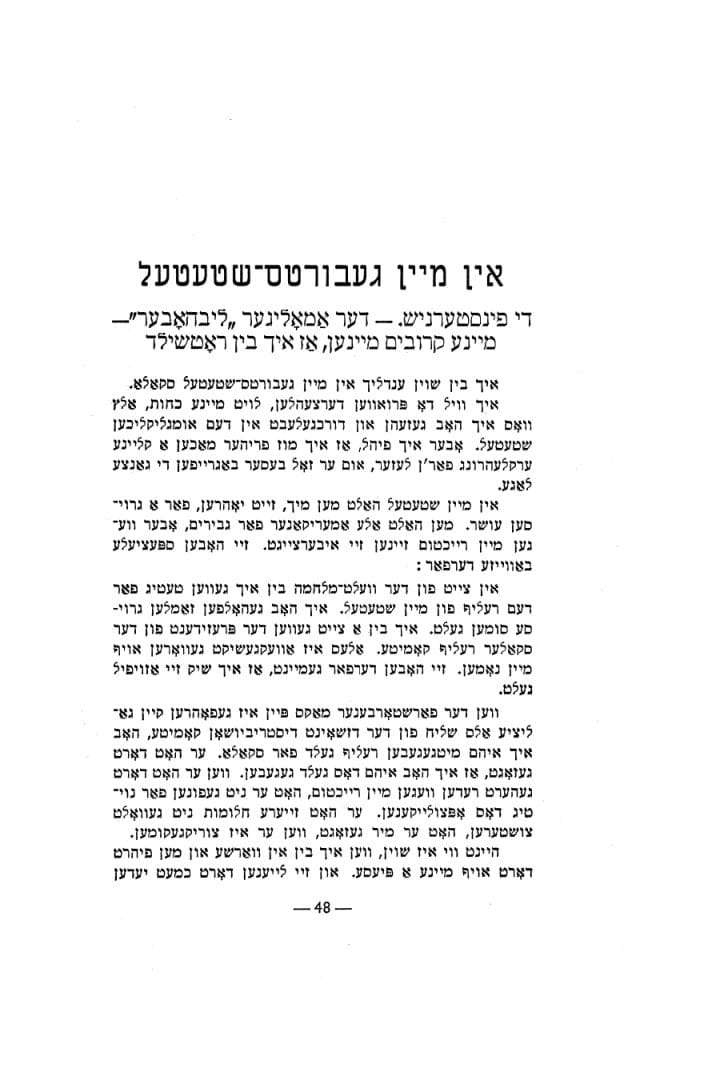
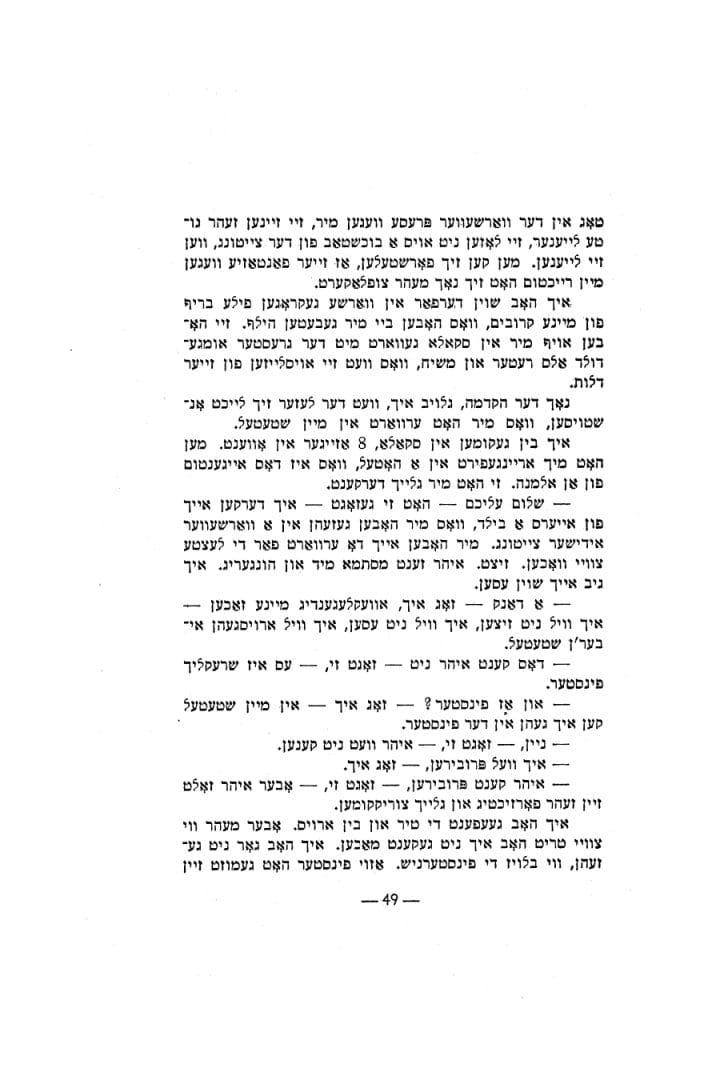
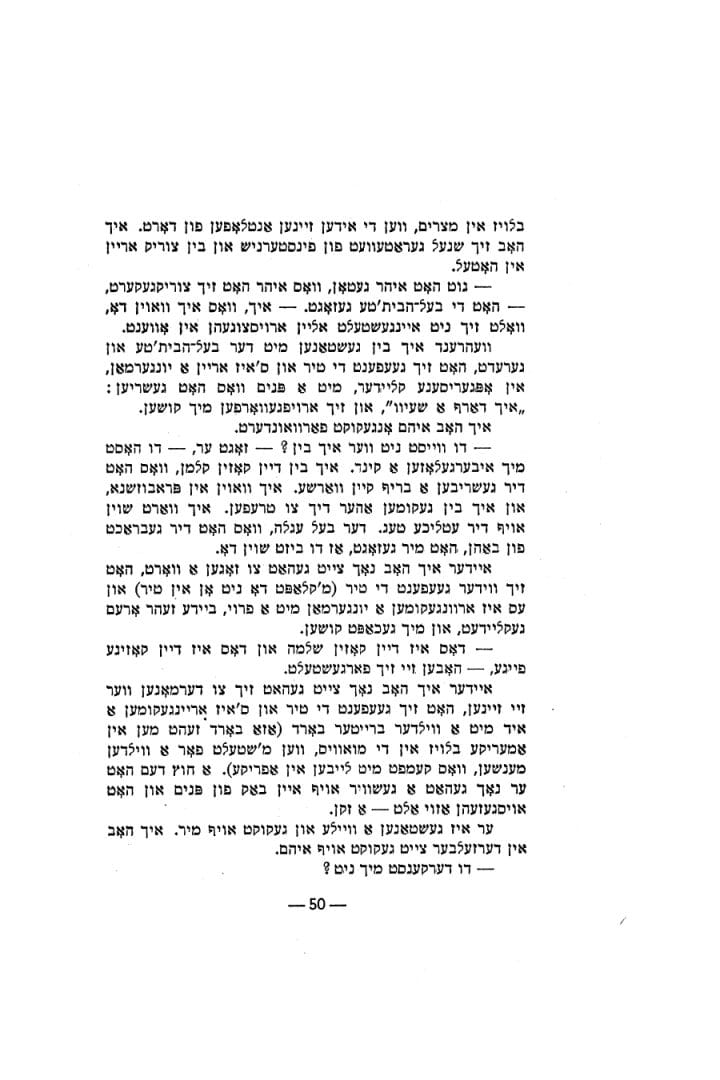
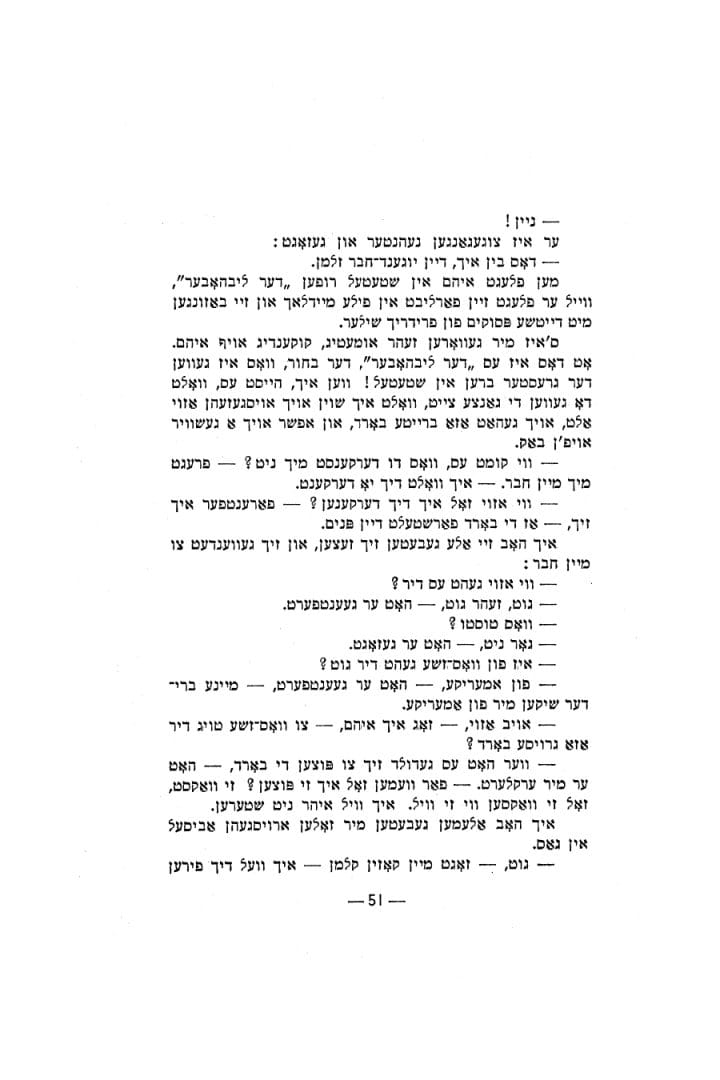
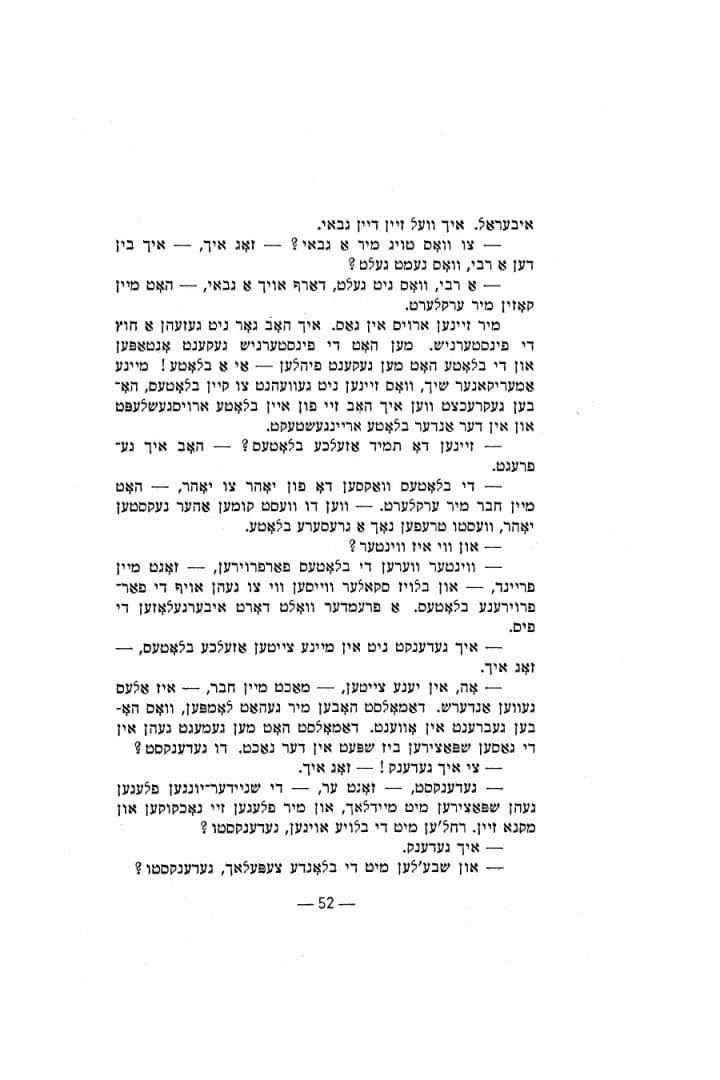
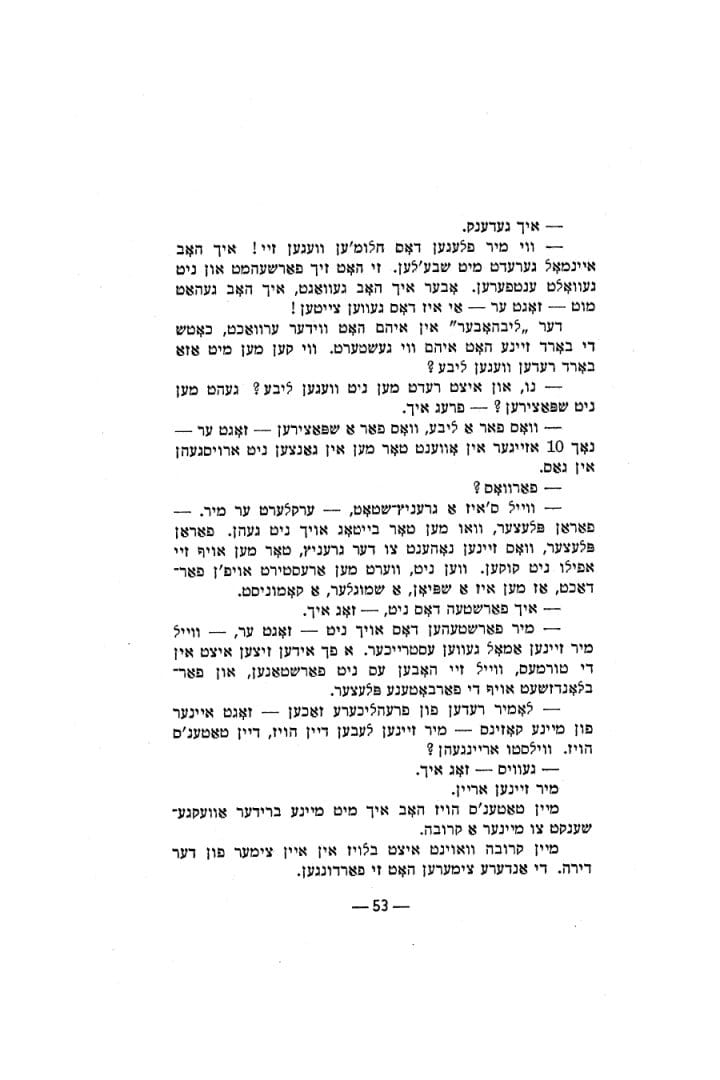
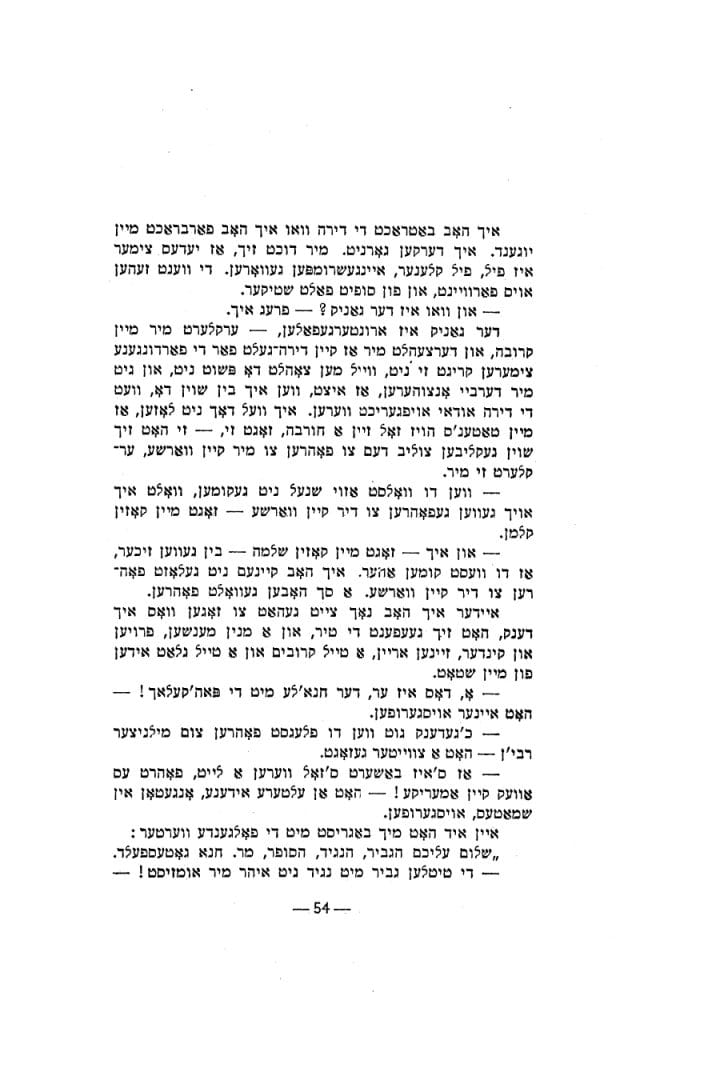
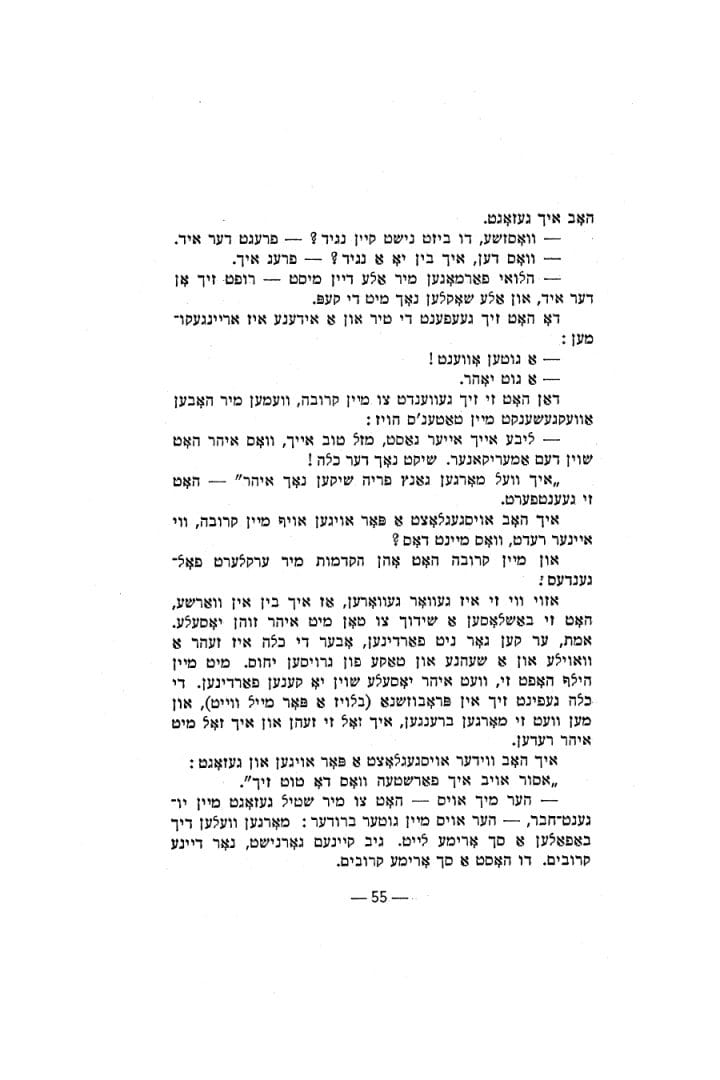

Returning three decades after his emigration, journalist Chone Gottesfeld of the New York Yiddish newspaper Forverts (פֿאָרווערטס) found his hometown of Skala—today known as Skala-Podilska—in a state of prolonged decline. According to the 1900 census, the town had 5,638 inhabitants, of whom Jews made up nearly half (2,494). By the time of the last census in 1931, Skala’s population had fallen to 4,017, with just 1,460 Jews remaining.
More broadly, towns across Galicia never recovered from the devastation of the First World War. During the interwar period, their main source of income—trade with the Russian Empire—had become impossible. As Gottesfeld’s account makes clear, the local population now had virtually no means of subsistence. Skala’s position as a border town only deepened its economic, social, and cultural decline. By the late 1930s, this border status also placed it under heightened police surveillance, as counties adjacent to the Soviet Union were considered sensitive zones. This constant scrutiny further intensified the town’s hardship.
The excerpt provides an anthropological lens on life in a border town: ever-present surveillance, a pervasive fear of Communist espionage and subversion, and the collapse of the once-vibrant urban life that had existed under the Austrian Empire. One also detects the phobias surrounding communism that permeated public discourse in interwar Poland—fears that emerged with the creation of the Polish state in 1918 and only grew more entrenched over time, reinforced by both the press and collective consciousness.
Gottesfeld’s travelogue reveals that, in his encounters with Jews in Galician towns, many expressed lingering loyalty to the lost Austrian Empire and felt little identification with the Polish state. The question of identity among Polish Jews—and Galician Jews in particular—has become a central theme in historiographical debates about the interwar period. This excerpt highlights the reasons why Jews in small towns like Skala remained suspended between identities: emotionally attached to the legacy of Austria, yet alienated from the historical memory of the Polish-Lithuanian Commonwealth.